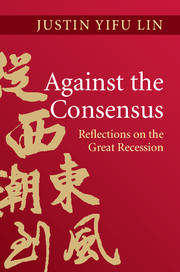Book contents
- Frontmatter
- Contents
- List of figures
- List of tables
- List of boxes
- Preface
- Overview
- Part I What Caused the 2008–9 Global Crisis?
- Part II A Win-Win Path to Recovery
- Part III How Poor Countries Can Catch Up: Flying Geese and Leading Dragons
- Part IV Toward a Brave New World Monetary System
- 12 The evolution of the international monetary system
- 13 Emerging pressures and policy challenges
- 14 (In)stability of the emerging multiple reserve currency system
- 15 The thinking behind the main reform proposals
- 16 Costs and benefits of major reform proposals
- 17 A proposal for a new global reserve currency: paper gold (“p-gold”)
- 18 Why it still matters
- References
- Index
17 - A proposal for a new global reserve currency: paper gold (“p-gold”)
from Part IV - Toward a Brave New World Monetary System
Published online by Cambridge University Press: 05 June 2013
- Frontmatter
- Contents
- List of figures
- List of tables
- List of boxes
- Preface
- Overview
- Part I What Caused the 2008–9 Global Crisis?
- Part II A Win-Win Path to Recovery
- Part III How Poor Countries Can Catch Up: Flying Geese and Leading Dragons
- Part IV Toward a Brave New World Monetary System
- 12 The evolution of the international monetary system
- 13 Emerging pressures and policy challenges
- 14 (In)stability of the emerging multiple reserve currency system
- 15 The thinking behind the main reform proposals
- 16 Costs and benefits of major reform proposals
- 17 A proposal for a new global reserve currency: paper gold (“p-gold”)
- 18 Why it still matters
- References
- Index
Summary
The survey of the evolution of the international monetary system and options for reform in previous chapters of this part provides a reminder of the complexity of designing global governance for a global economy. And that is without considering the equally important and challenging issues raised by the broader global financial architecture, including cooperation on the regulation and supervision of financial institutions. The recent transmission of the effects of the weaknesses in US housing finance across international borders is a painful reminder of how difficult – and vital – this issue is. The fiscal dimension of reforming the international monetary system is yet another potential sticking point. Any increase in the size and role of the IMF, expansion in the role of SDRs, or attempt to create new international currencies will require fiscal backing by national governments.
This book has amply demonstrated the fragility of the international monetary system, which has experienced periodic crises over the past two centuries. The rapid swings in market perceptions, the fiscal challenges in high-income countries, and the development challenges of emerging market economies could all lead to regional and global instabilities even greater than those of the past decade. Complicating the situation is the difficult political process involved in addressing such looming issues as pension and health reforms in rich countries and income inequality and other social stresses in emerging market economies.
- Type
- Chapter
- Information
- Against the ConsensusReflections on the Great Recession, pp. 199 - 204Publisher: Cambridge University PressPrint publication year: 2013



